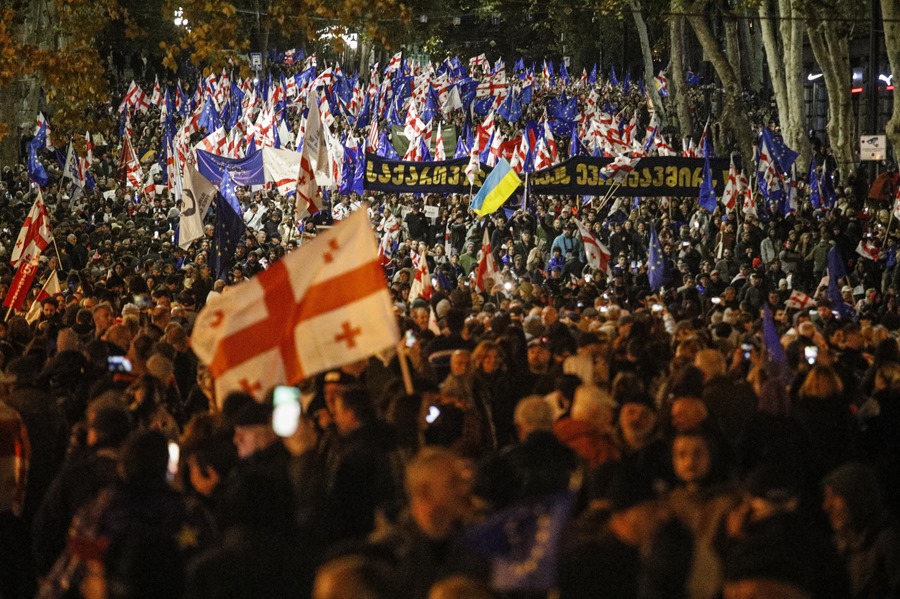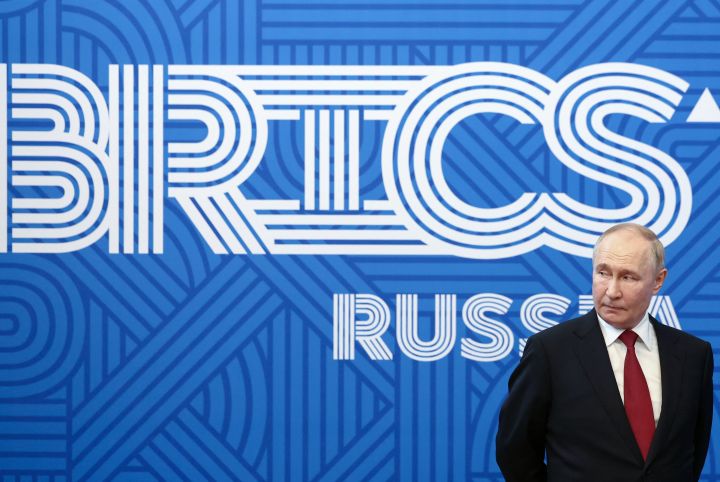Tbilisi (EFE).- Thousands of Georgians marched today in Tbilisi in favor of the country’s European future six days before parliamentary elections, which President Salomé Zurabishvili sees as an election between the EU and Russia.
Under the slogan “Georgia chooses the EU”, supporters of rapprochement with Europe gathered at five points in the capital from where they marched in column towards Freedom Square, where they sang the anthems of the Caucasian country and the EU.
The action, called by non-governmental organizations and opposition parties, was also attended by the Georgian president.
From the largest opposition party, the United National Movement (MNU), they warned the Government that the people “will not give up their European future.”
Many people wave EU and Georgian flags as they take part in a pro-European demonstration ahead of the parliamentary elections in Tbilisi, Georgia. EFE/EPA/DAVID MDZINARISHVILI
European future
“This action is the last warning to the honorary president of the ruling Georgian Dream, Bidzina Ivanishvili, that the Georgian people will not give up their European future,” said MNU president Tinatin Bokuchava.
Meanwhile, Zurabishvili asked attendees to demonstrate the will to “return freedom, independence and a European future to the country.”
The participants in the demonstration stated that it is a “rehearsal of the opposition’s electoral victory”, while the Georgian Dream, which has governed Georgia since 2012, assures that it will obtain around 60 percent of the support, after which will restore relations with the West.
Many people wave EU and Georgian flags as they take part in a pro-European demonstration ahead of the parliamentary elections in Tbilisi, Georgia. EFE/EPA/DAVID MDZINARISHVILI
Relations with the Kremlin
The Caucasian country has notably improved its relations with the Kremlin coinciding with the war in Ukraine, which has dramatically worsened its ties with the United States and the European Union.
After the Georgian Parliament approved the Law on Transparency of Foreign Influence in May this year, which the Georgian opposition considers similar to the one passed in Russia to repress civil society, the European Union, the United States and the United Kingdom froze cooperation programs with Georgia.
In addition, Brussels and Washington also criticized the Georgian Parliament last September for approving another document that prohibits, as in Russia, information regarding homosexuality.


